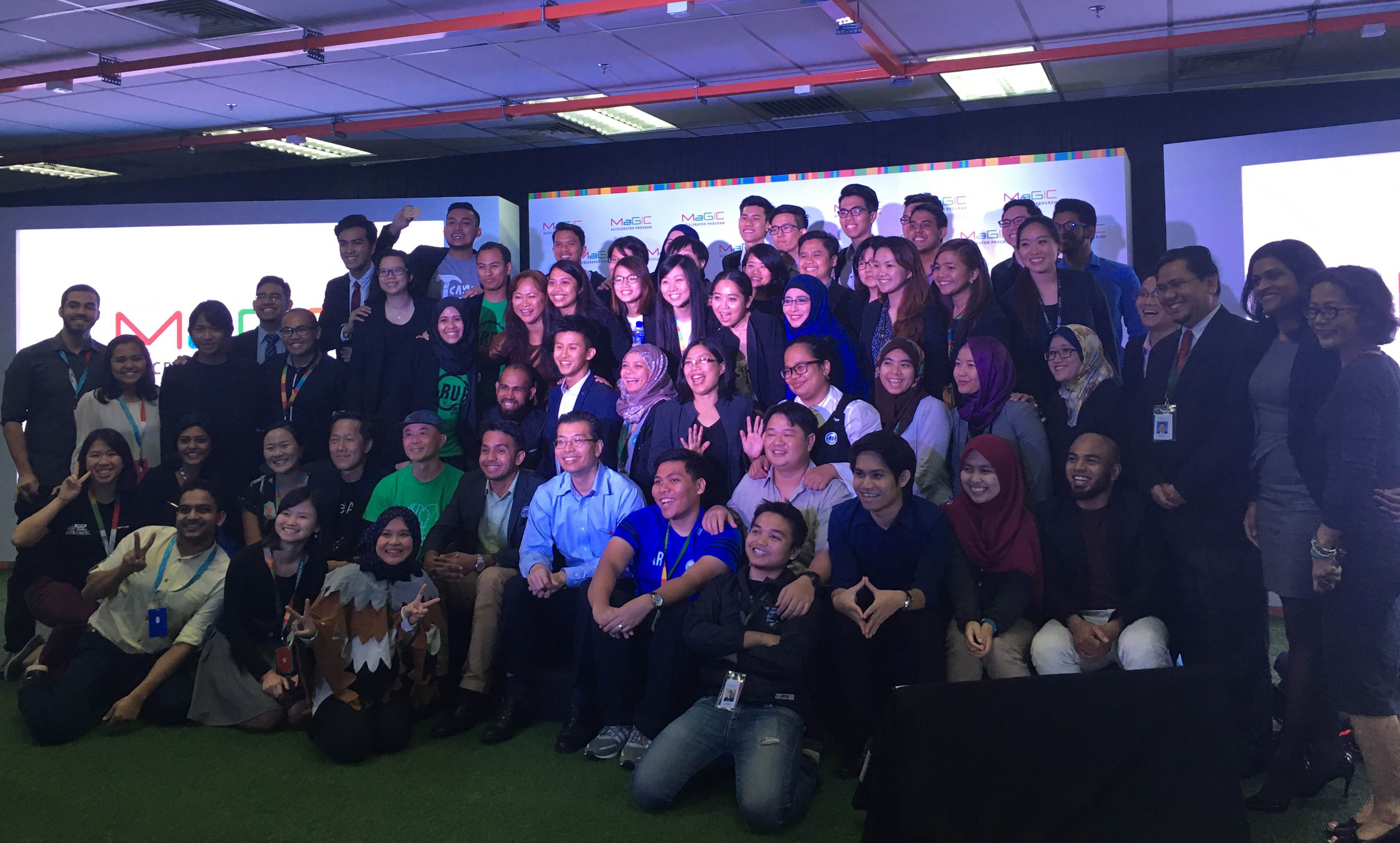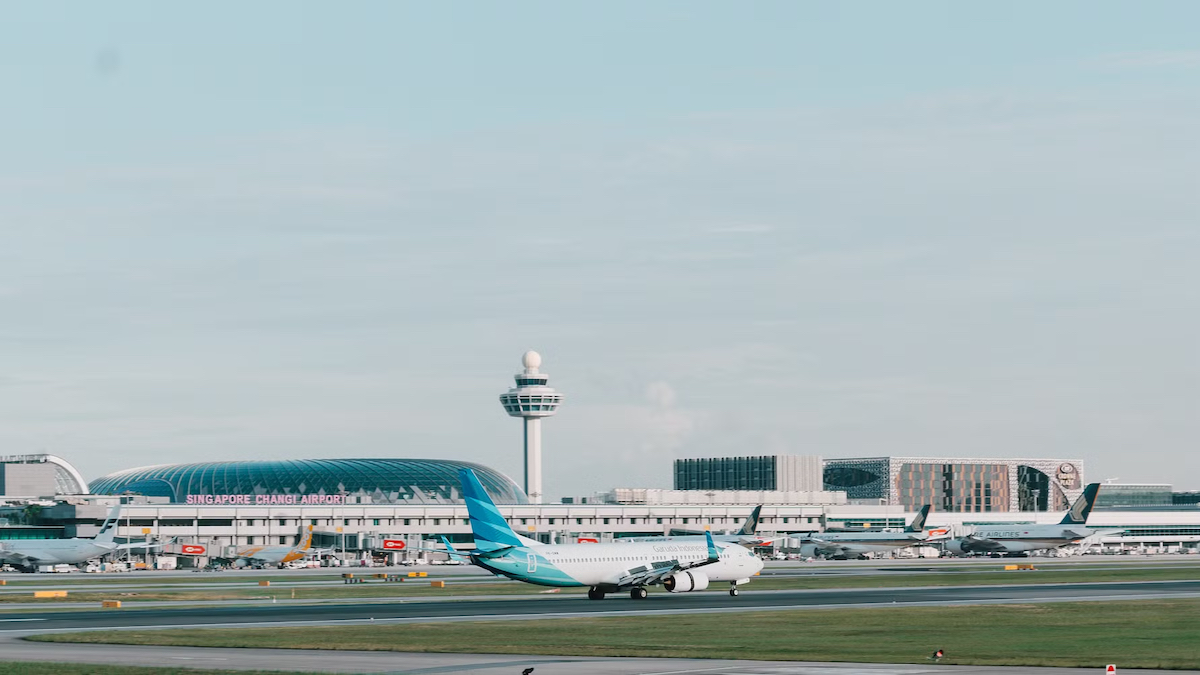It’s always nerve-wrecking to be speaking in front of a crowd, but the confidence and passion shown by some of the startups who were present at this year’s MaGIC Accelerator Programme Social Enterprise Track Demo Day helped cover any stage fright they might have been suffering from. In the span of 5 minutes, they proudly shared what their mission and vision was to a panel of higher-ups from influential brands.
The MaGIC programme has always focused on improving the local social entrepreneurship scene, which is reflected in the way they brand their programme as an accelerator. So out of the 23 startups who pitched, here are 12 that left a deep impression, in no particular order.
1. Babylon Vertical Farms

On a daily basis, restaurants and hotels all over Malaysia consistently buy vegetables to sustain their business. Unfortunately, the time taken for the harvest-to-plate process is rather long which can actually cause a drop in quality and freshness of the produce. Babylon Vertical Farms provides an alternative solution where they build, grow and operate their farm in the city itself by using vertical grow towers for their plants.
They have already completed the third iteration of their prototype/proof of concept that consists of 4 towers with a height of 5 feet each and this allows them to grow 16 plants in a shorter time span.
As of July 2016, they have been approached by 36 restaurants and have 20 potential paying customers already in line.
2. The Picha Project

There are more than 150,ooo registered refugees in Malaysia but unfortunately, Malaysia is not a signatory of the 1951 UN Refugee Convention. This means there are no refugee camps in Malaysia, they have no legal rights to work and this results in them not having any income. The Picha Project, named after a refugee child, provides opportunities for refugees with cooking skills to earn an income above the minimum wage and decreases their risk of falling into poverty.
Another strength of the project is that they enable the refugees to maintain their pride and earn the money they receive, instead of leaving them reliant on handouts.
The Picha Project has collaborated with big names such as UNICEF, MaGIC, British Council, PwC, Petronas and Hong Leong Foundation. They currently have a monthly revenue of RM20,000 and have served over 2190 people.
As of July 2016, they have 7 refugee families involved as food suppliers and each family earns more than RM1000 per month.
3. GreenYards

Everyone who cooks know how much cooking oil is needed for a single meal, but to put it to perspective, around 220 million litres of used cooking oil is dumped into the drains in Malaysia every year and that amount is enough to fill 88 Olympic-sized swimming pools. That is a lot of oil.
So GreenYards came up with the solution of taking your grease by having special bins placed around for you to pour the used oil in and then they turn it into eco-products such as bar soaps and candles.
Currently they have 4 drop off points throughout the Klang Valley area and have managed to secure 1 retailer to house their service.
As of the end of July 2016, they have managed to save up to 810 litres of used cooking oil in a span of a 3 months.
4. Agak-Agak

We’ve written about them before, and seeing the low wages and no proper training given to employees, Agak-Agak aims to make a change by hiring more people from the underprivileged community to undergo a holistic, on-the-job training that will hopefully enable them to pursue a career in the field.
Agak-Agak has joined hands with The Kitchen Table, who will support and become future potential employers, as well as Teach For Malaysia, to help provide a development programme and recruitment for the apprentices.
They are currently in the midst of preparing for their first outlet at APW Bangsar, who have agreed to subsidise the rent for 2 years, in collaboration with Agak-Agak.
5. GrubCycle

Food wastage is an issue faced by society as the food industry continues to grow. Buffets, café outlets, bakeries and restaurants all have unsold food that, at the end of the day, they discard in the trash. GrubCycle aims to put a stop to that by reducing food wastage through the means of selling surplus food at affordable prices.
GrubCycle has received a grant from myHarapan to implement their pilot project where they will be collaborating with local chefs to create 3 recipes using unsold fresh vegetables and fruits from other retailers.
In a span of 2 months, they have managed to sell unsold items that have expiration dates approaching at 50% off market price and generated RM1500 in revenue as well as saved 7okg worth of food.
6. Recycool

When you combine lack of awareness with recycling bins not being prominently displayed, you get 30,000 tonnes of landfill a day and only 5% of trash is recycled. Recycool wants to change this by encouraging Malaysians to cultivate a recycling habit through the means of crafty eye-catching recycling bins displayed in major areas.
In 2 months, they have managed to go from 0kg to 25kg in recyclables from their bins placed at MaGIC MAP Space and from 0kg to 5kg at Dash Box Hotel.
As of July 2016, they have 12 Recycool bins placed and have saved over 130kg of recyclables from going to landfills and the ocean.
7. Project Woodworks

Forest loss in Malaysia is actually one of the highest in the world, with around 493k hectares lost in 2014. This means climate change is imminent and environmental initiative in Malaysia is low. Project Woodworks advocates sustainability by appealing to the millennials, designing unique and stylish lifestyle essentials by using re-purposed wood and giving back to the environment.
In a span of 3 months, Project Woodworks has managed to gain RM7000 in pre-order sales before their official launch and are working with Landskap Malaysia and Tropical Rainforest Conservation & Research Centre to further their business.
They will be entering into 3 retailers by September 2016 which are LOKA Asia, Wood & Steel and FABSPY.
8. KOYA Clothing

Since 2011, there has been an astonishing number of 50,000 dropouts in Malaysia and the reason mainly stems from a lack of interest in school, expulsion and poor academic performance. KOYA is a brand that inspires youth to lead a healthy and happy life by providing extreme sports programmes that develop self-esteem and well-being.
KOYA holds an average of 5 events per year where they managed to offer 40 jobs to youths and have gone to sponsor 7 role models that have high potential in the x-games.
Since 2013, they have managed to help 60 youths at risk, particularly one who ended up becoming a national champion for BMX stunt and was so inspired by KOYA that he ended up finishing his studies and having a business of his own.
10. Langit Collective

In the villages of Sarawak, rural rice farmers are unable to maximise their potential income from their produce due to flight transportation cost and middle-man exploitation. Langit Collective helps them by managing the whole supply chain and sourcing the rice directly from farming families to ensure they receive more income and increase the productivity of farming families.
They currently have 3 versions of Beras Adan, which is a brand under their name and they have joined 3 bazaars while handling sales on their Facebook platform. They have managed to sell off all 250kg of the rice they had to consumers, which generated around RM5,500 in revenue.
As of July 2016, they currently have 11 farming families as their beneficiaries and hope to increase this further by the end of the year.
10. Kayu Besi

60% of wood pallets are disposed from the factory industry in Klang Valley after the logistic process, a large amount that causes an eye sore to society and impacts the environment negatively. Kayu Besi is a social enterprise that aims to reduce waste by turning wood pallets into home and commercial furniture products.
Their pilot project has managed to reduce 30% of wasted wood pallets in Klang Valley with 10 product designs already built for consumers.
As of June 2016, they have acquired 4 pre-orders for their furniture that amounts up to RM1700.
11. SevenTeaOne

The employment for Malaysians in the agriculture sector has dropped rapidly since 2010, going from 15.7% to 10.9%. SevenTeaOne, a fair trade tea company, aims to empower farmers and underprivileged communities by incentivising existing and new rural and urban farms.
SevenTeaOne has cultivated 1,100 plants. employed 5 women from Chin Refugee Association Cheras and has sold over 500 teabags since April 2016.
In the 1st month, they were only able to produce 200 teabags per month but 6 months later, they are now capable of producing 2,000 teabags per month.
12. B-TOP

It’s a known fact that soccer is a favoured sport by many around the world yet many may not realise how big the impact could be on a youth’s life. B-TOP, which stands for ‘Bring The Opportunity Programme’, is a social enterprise aimed to help young students who face difficulties staying motivated at school and lack progression by using the method of involving them in soccer to push their drive.
During their pilot project that went on for 9 months held at SMK Badak, Bachok in Kelantan, they managed to see an improvement from 10% to 30% passes in exams as well as the truancy rate decreasing from 90% to 50%.
Their plans for the future include building their first official B-TOP Academy where they will be able to run more programmes and reach out to more troubled teenagers with their soccer activities.
Out of all 23 startups that pitched during this Demo Day, it was a true challenge just picking 12 of them but seeing the energy and passion they put into their idea and businesses was truly inspiring. If you’d like to see the full list of startups from the Social Enterprise track of MaGIC’s Accelerator Programme, you can check that out here.
Malaysian Global Innovation and Creativity Centre (MaGIC) aims to build a Sustainable Entrepreneurship Ecosystem by catalysing creativity & innovation for long term nation impact. Meet their startups here, and find out more about their accelerator programmes here. You can also follow MaGIC on Instagram and Twitter for live feeds.










